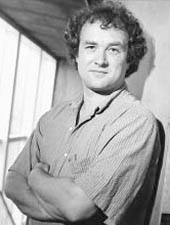Charles, C. H., Sun, H., Lau, L. F., Tonks, N. K. (June 1993) The growth factor-inducible immediate-early gene 3CH134 encodes a protein-tyrosine-phosphatase. Proceedings of the National Academy of Sciences of the United States of America, 90 (11). pp. 5292-5296. ISSN 0027-8424
Preview |
PDF
Tonks_PNAS_1993_thegrowth.pdf - Published Version Download (1MB) | Preview |
Abstract
Stimulation of fibroblasts with serum growth factors results in the rapid activation of a set of immediate-early genes, among them 3CH134. We have purified a bacterially expressed form of the 3CH134-encoded polypeptide and demonstrated that it has intrinsic protein-tyrosine-phosphatase (PTPase; protein-tyrosine-phosphate phosphohydrolase, EC 3.1.3.48) activity in vitro. This activity is optimal at pH 7.5, is sensitive to vanadate and cysteinyl modifying agents, and is insensitive to a panel of serine/threonine phosphatase inhibitors. Purified 3CH134 protein displays a high degree of selectivity among the tyrosine-phosphorylated polypeptide substrates tested. Under our assay conditions, the rates of dephosphorylation are in the order EDNDYINASL peptide < myelin basic protein < reduced, carboxyamidomethylated, and maleylated lysozyme (RCML) < p42mapk. There is a 200-fold range in rates for these substrates, with p42mapk dephosphorylated 15-fold more rapidly than RCML. Although 3CH134 is most closely related to the tyrosine/serine dual-specificity phosphatase VH1, we failed to detect any 3CH134-directed activity on casein or RCML phosphorylated on serine/threonine residues by cAMP-dependent protein kinase. Since 3CH134 expression is controlled transcriptionally and posttranscriptionally, it may represent a class of PTPases whose activity is regulated at the level of protein synthesis and degradation.
Actions (login required)
 |
Administrator's edit/view item |

